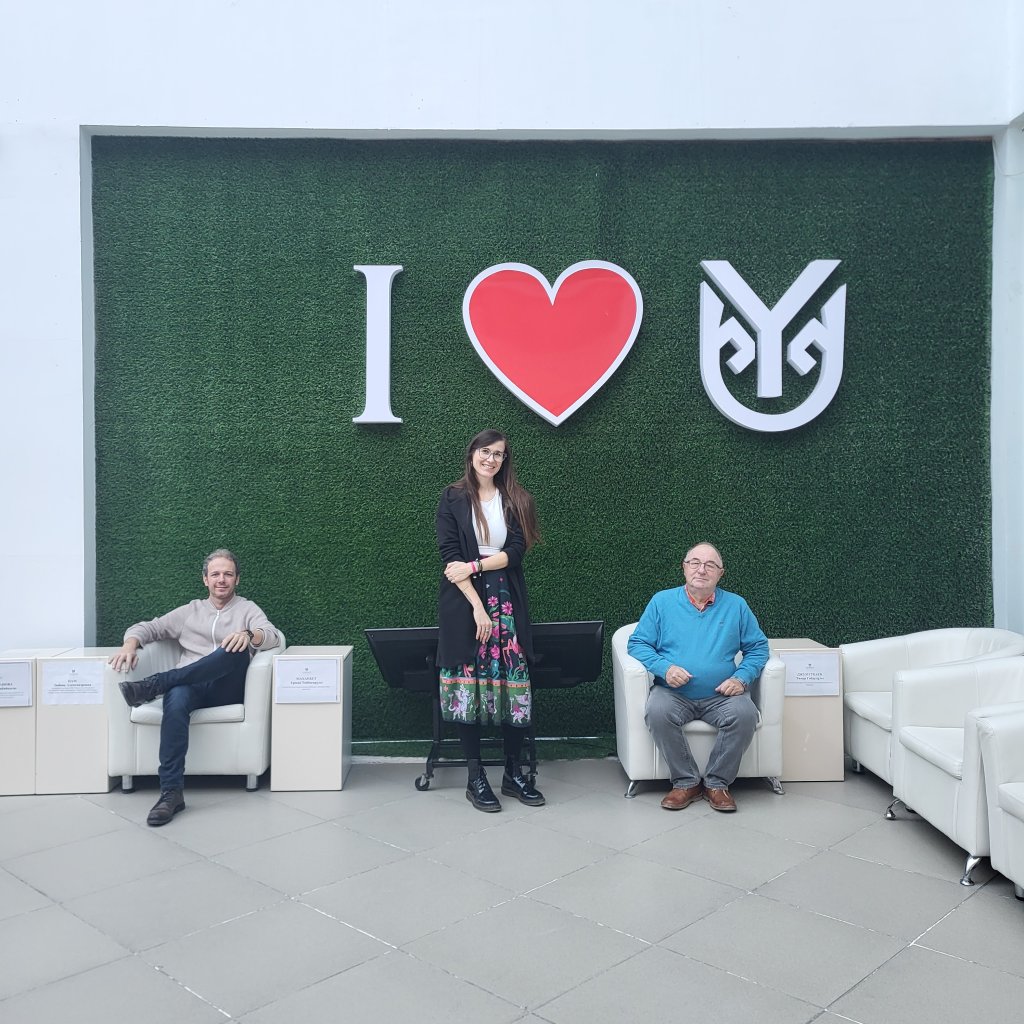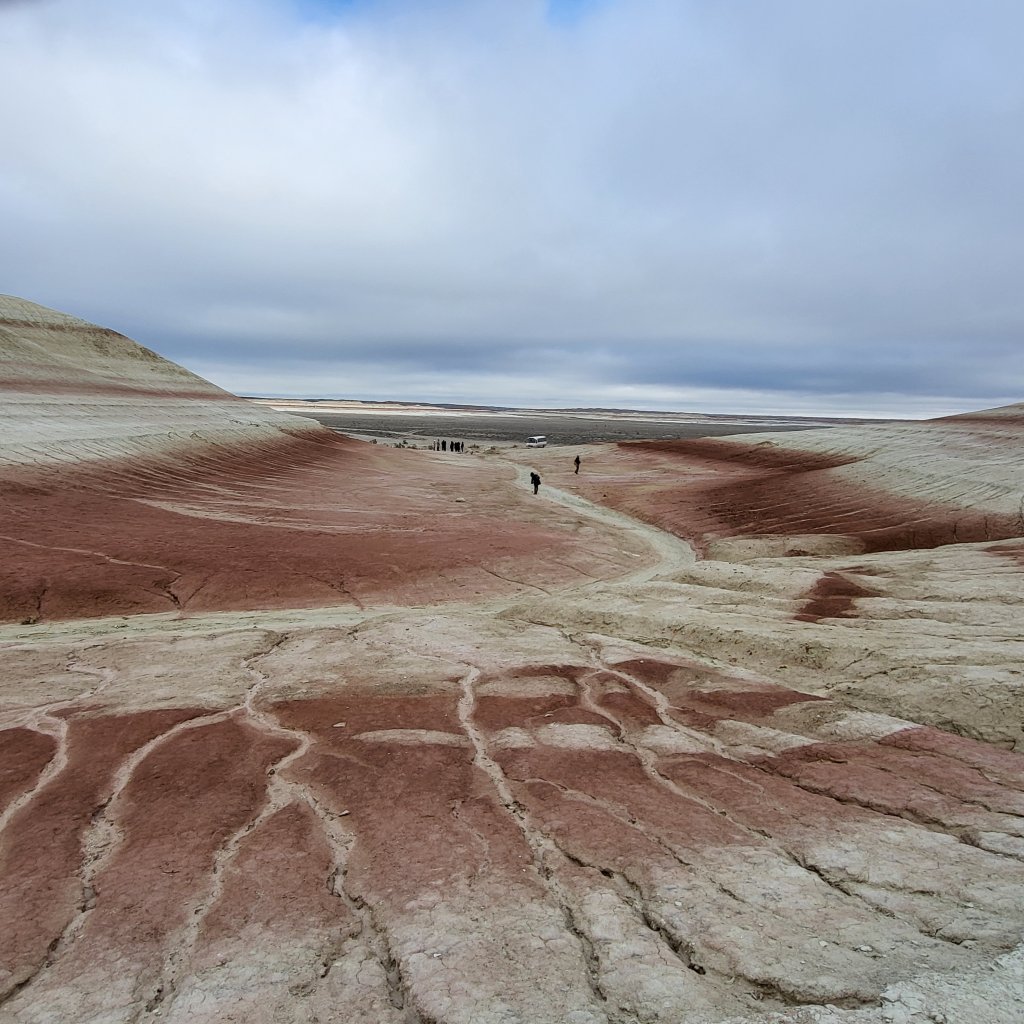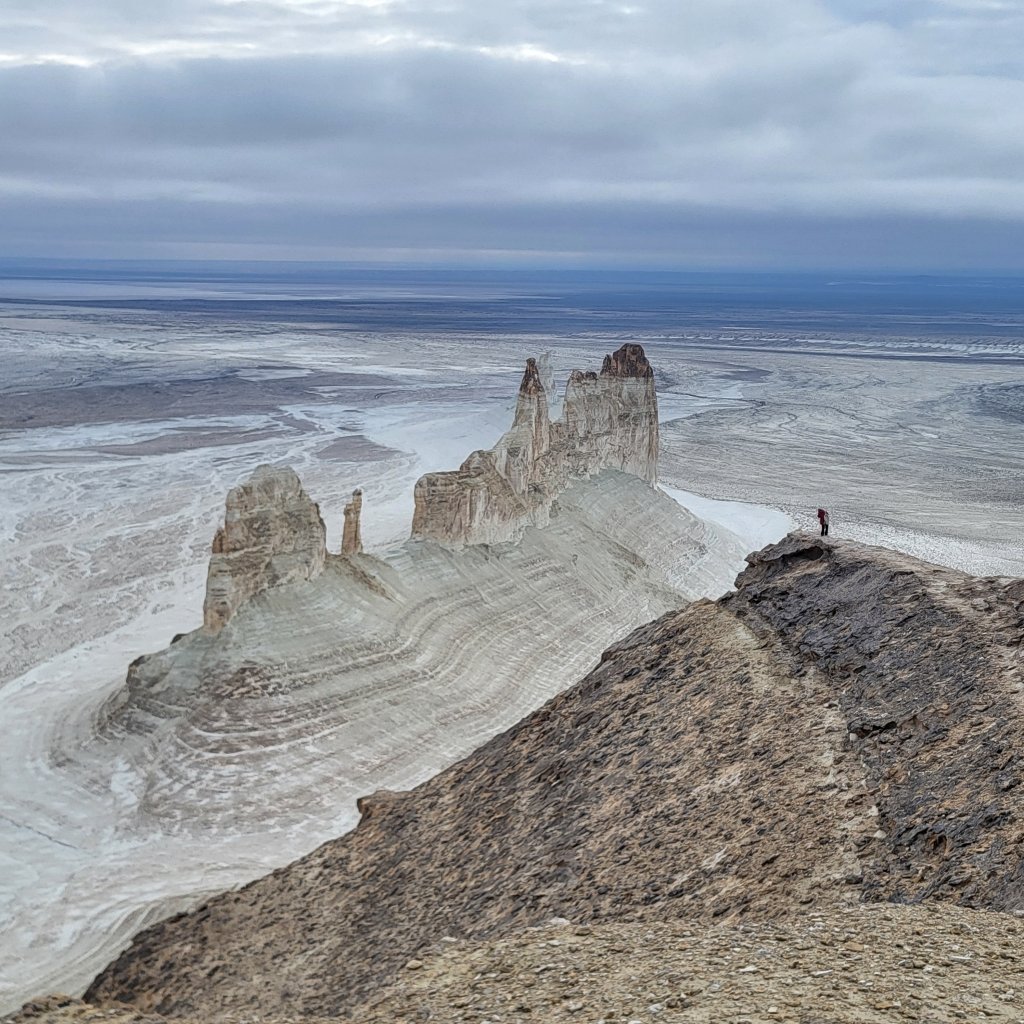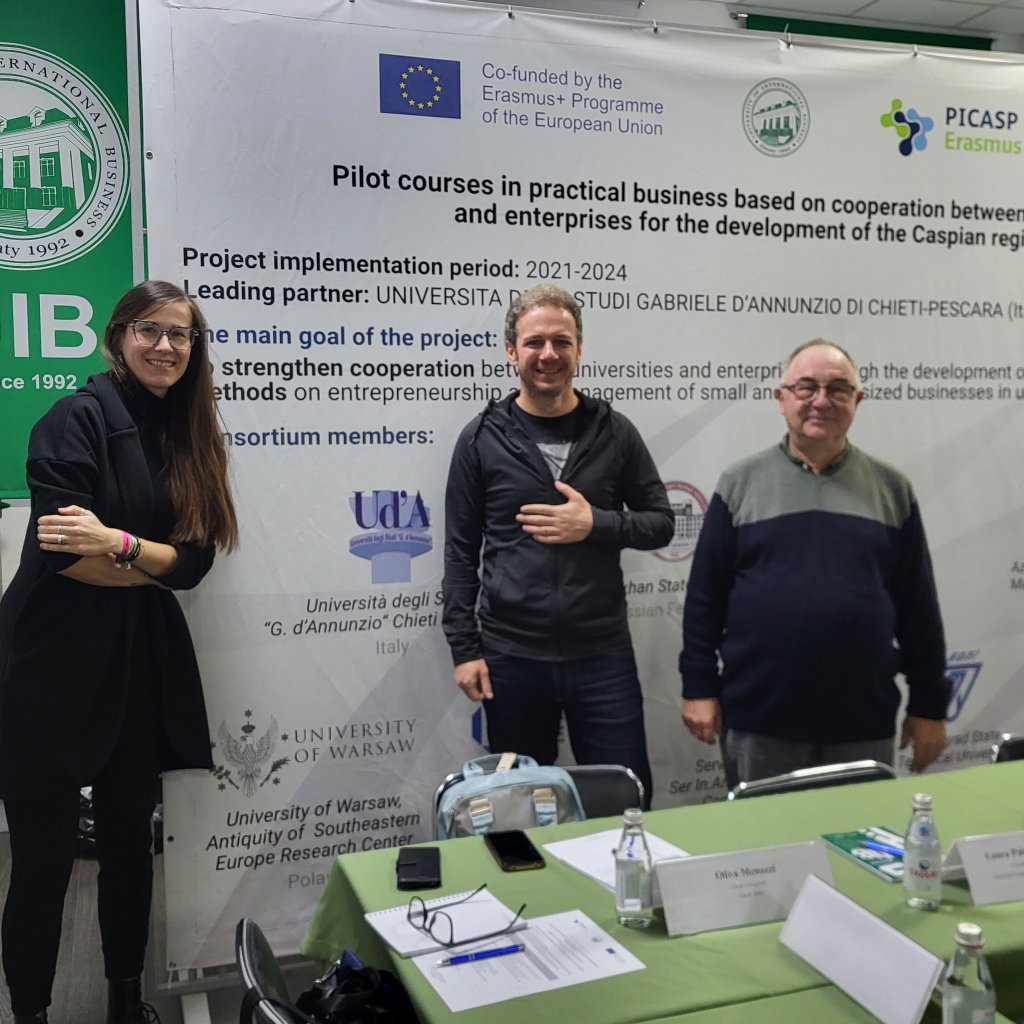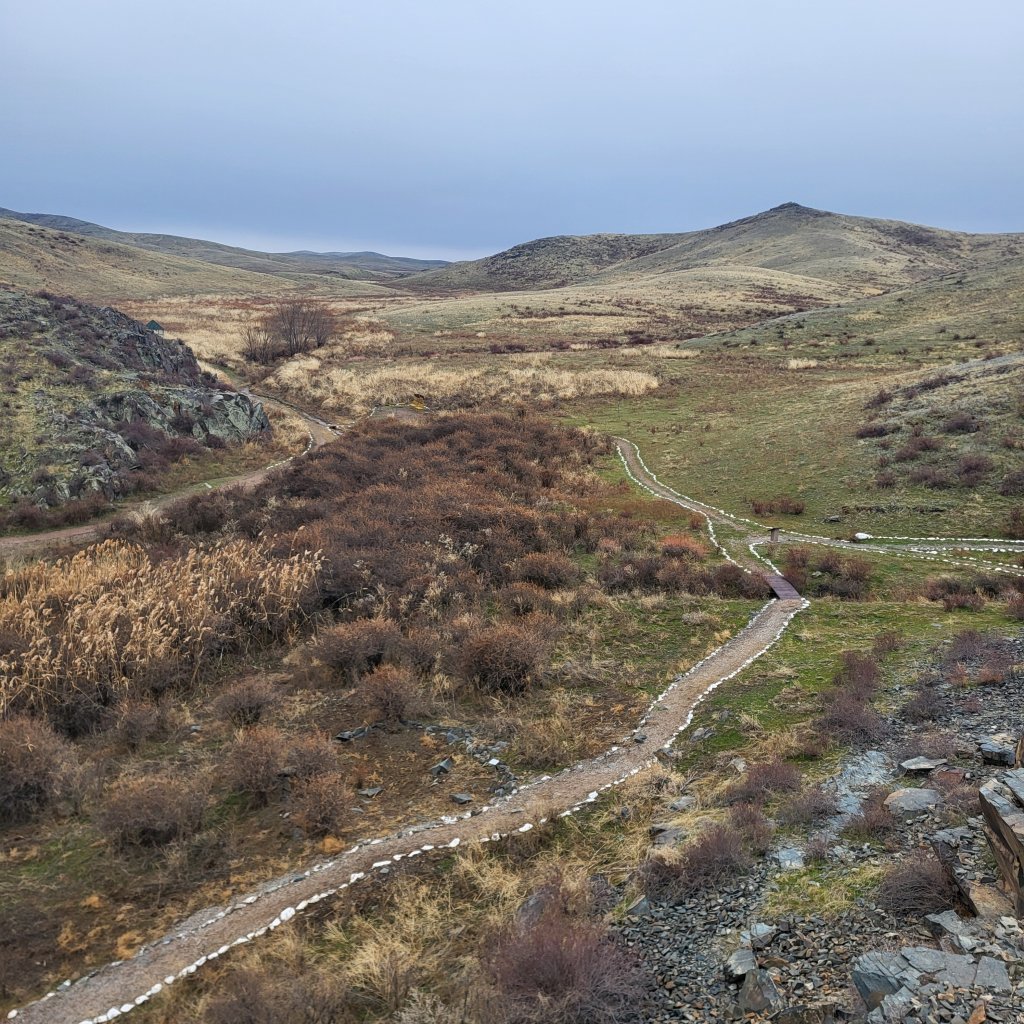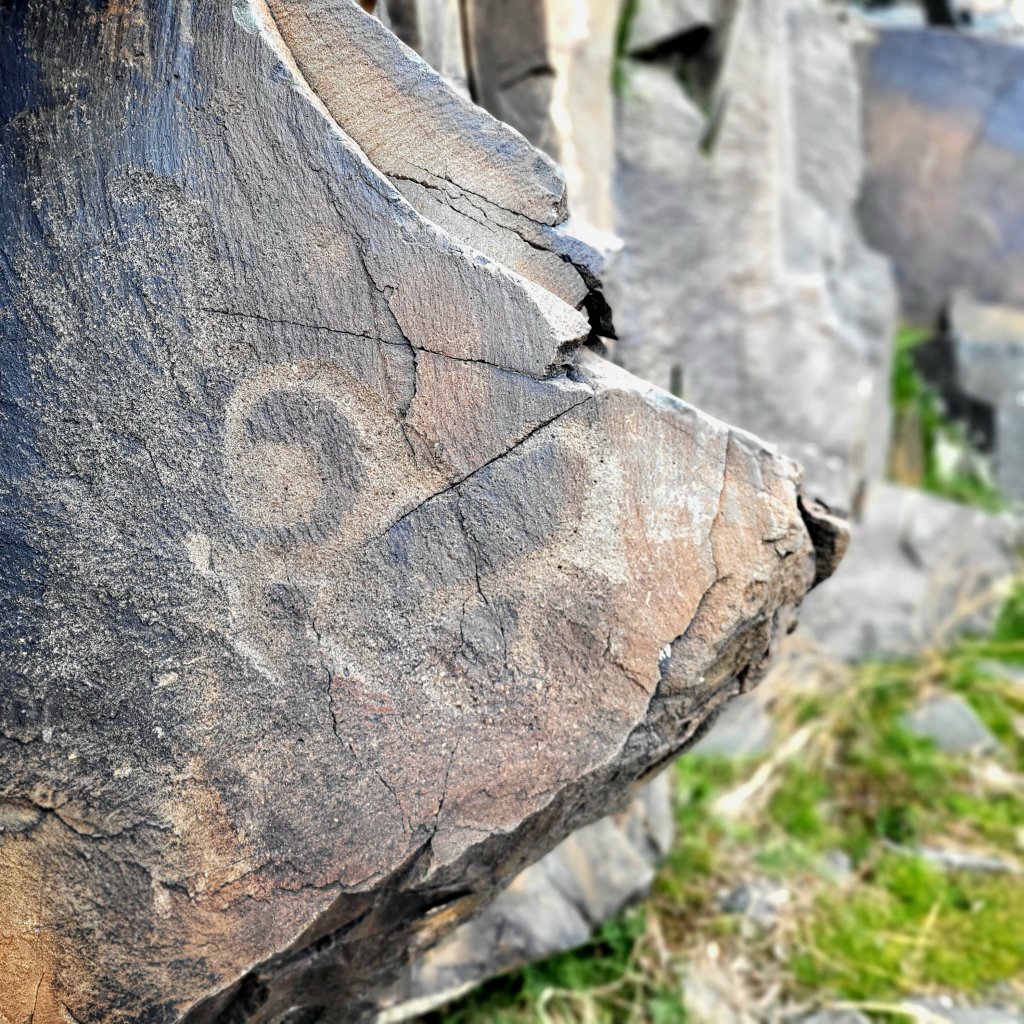PICASP Project Working Meeting

We have recently concluded another working meeting as part of the international PICASP project, which has been bringing together partners from various countries for nearly four years to harness cultural heritage, natural resources, and traditions to support economic development. This time, the host was Kazakhstan, where Yessenov University in Aktau and the University of International Business in Almaty organised a two-part event, summarising the achievements to date and setting out the next steps.
The first stop was Aktau, a coastal city on the Caspian Sea. Here, representatives from our centre, including Prof. P. Dyczek, Mgr Agata Momot, and Dr Krzysztof Narloch, along with partners from Lithuania and Italy, reviewed the results of almost four years of collaboration. Key project outcomes were presented, including a new study programme developed by Yessenov University. This initiative focuses on leveraging local heritage, natural assets, and traditions to build the economic potential of the region. It exemplifies how sustainable development efforts can effectively bridge academic knowledge with practical applications.
The second stop was Almaty, the cultural and economic hub of Kazakhstan. The host of this segment, the University of International Business, introduced an innovative approach tailored to the specific needs of the area. Known for its well-developed tourism industry and diverse economy, Almaty required a distinctive strategy. Here, the focus was on developing a study programme centred on the spirituality of nomads – a vital element of Kazakhstan’s cultural heritage. The traditional nomadic lifestyle, with its deep connection to nature, communal values, and spiritual dimension, was harnessed as the foundation for modern tourism strategies.
This new programme aims not only to educate but also to promote the region on an international scale. It includes initiatives such as partnerships with local tourism businesses, the creation of cultural trails inspired by nomadic heritage, and workshops showcasing traditional crafts and customs. The emphasis on sustainable development ensures the preservation and innovative enhancement of the region’s unique cultural assets.
The meetings in Aktau and Almaty were not only an opportunity to showcase project outcomes but also a source of inspiration for future cooperation. By exchanging experiences and fostering intercultural collaboration, the participants laid a solid foundation for upcoming initiatives that harmonise tradition with modernity. These stops in Kazakhstan are an excellent example of how creative use of heritage can contribute to long-term socio-economic development.
Finally, we invite you to explore a selection of photographs from our meetings, capturing both the spirit of teamwork and the breathtaking landscapes of Kazakhstan, including the picturesque Caspian Sea coastline and the mountainous vistas surrounding Almaty.
